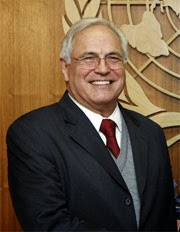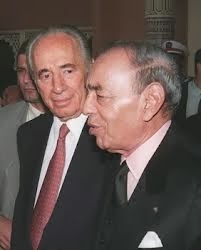Western Sahara activists feel full force of Moroccan intimidation

Moroccan security forces use heavy-handed tactics to repress Saharawi organisations and campaigns for independence Western Sahara can only be described as a police state. I was there recently with the first British parliamentary delegation to the occupied territory and everywhere we went we were closely shadowed by undercover agents. Wherever we were driven by our Saharawi hosts, we were tailed by Moroccan police. Most chilling of all was the heavy police intimidation of a peaceful Saharawi demonstration we witnessed in the capital, Laayoune, the day before we left. The demonstration was the latest in a series of monthly protests called by human rights groups to demand the release of all Saharawi political prisoners being held in Moroccan jails, and an extension of the mandate of the UN monitoring body, Minurso , to include human rights . Saharawi human rights groups had duly informed the Moroccan authorities of the protest in advance, but because all Saha...





